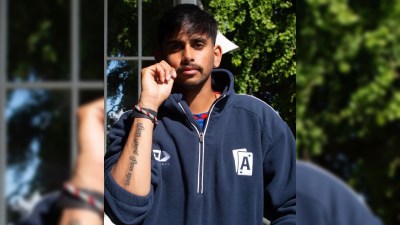Where have all the heroes gone?
Even in that last bastion, the army, they are proving elusive

Desperately Seeking People of Substance. That should be the strapline of India at 60. Why are our institutions crumbling? Where are values like ethics, loyalty and selfless service? Between chatting on cell phones, a bunch of yuppies watching Mahatma Gandhi, in Gandhi My Father, were hooting in disbelief. They could find no modern parallel.
Thanks to its constant deployment for internal duties, the army, regarded as the last bastion of bravery, integrity and discipline, is no longer pristine. Earlier insulated from civilians to preserve its ethos, its men now rub shoulders with them. There are no external conflicts, only internal battles. As a traumatised captain posted in the Northeast once confided, 8220;It goes against the grain. We are trained to kill the enemy, but now we are fighting our own people.8221;
Leadership has morphed into self-promotion, and people rise by trampling on others. But it wasn8217;t always like this. My mother often joked that my father was married to his regiment. His troops were his family, to be nurtured and protected at all cost. Their
services were never misused. At the weekly Barakhana, or dinner, to which I sometimes accompanied him as a child, he would connect with the troops as men, not serfs or combat machines. He knew their names and those of their villages. His boys were infected by his josh. He led by example.
Dad met perhaps his greatest test in the mid-8217;50s in Nagaland. In action against insurgents, one of his JCOs accidentally killed an innocent civilian. This triggered a protest orchestrated from Nehru8217;s office 8212; his stenographer happened to be the victim8217;s niece. Dad took complete responsibility for the lapse. He paid the price for it. An earlier operation on a formidable rebel stronghold, for which a JCO of the battalion was awarded India8217;s second Ashoka Chakra, and for which Dad was to be decorated with the Ashoka Chakra Class II, was completely forgotten. Dad carried the blot of that incident throughout his career. He retired as commandant of the regimental centre in the late 1960s, and passed away soon afterwards. Yet, to this day, Dad8217;s name evokes tremendous respect. As one of his regimental juniors remarked, 8220;Committed leaders like him are rare. Army excesses are on the rise, but seldom does a senior officer suffer for them. He simply passes the buck.8221;
Years later, in 1990, I compiled a report on girls, including a bride, gang-raped by soldiers in remote villages of Kupwara district. I spent days cross-checking their testimony. A beautiful 16-year-old in the idyllic village of Ballipora had sobbed, 8220;Whenever someone mentions the army, I have palpitations.8221; This was a face of the forces I had never seen and was glad Dad wasn8217;t alive to see it either.
After the story was published, I received an anguished letter from the senior officer under whose command that area fell. It turned out he belonged to Dad8217;s regiment. He protested that my story would tarnish his career, adding that he was shocked that an army daughter could have written it. I replied that I had only done my duty as a journalist.
Postscript: The officer retired as a general.
- 01
- 02
- 03
- 04
- 05






























